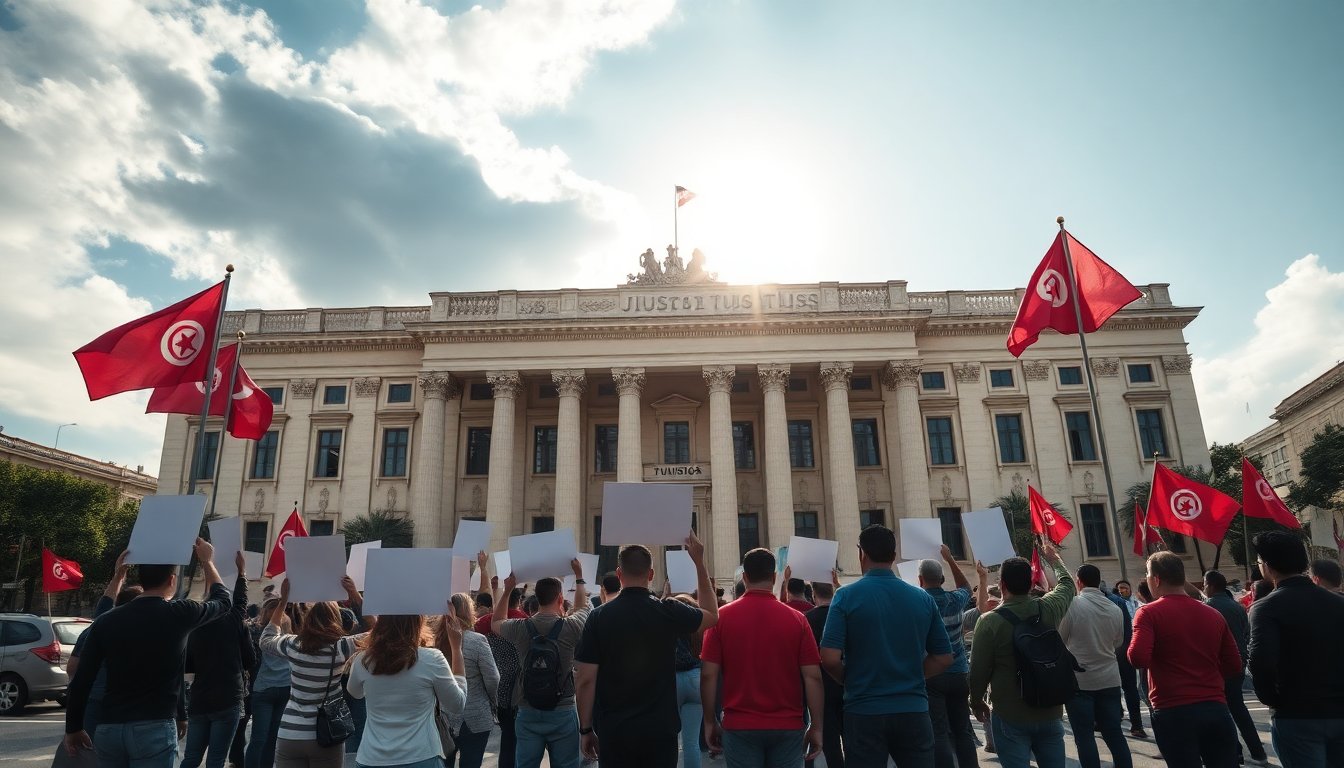Table of Contents
The political landscape in Tunisia has deteriorated as the government escalates its crackdown on dissent. Recent court rulings have resulted in sentences of up to 45 years in prison for nearly 40 opposition figures, raising alarms among human rights advocates. This judicial action is viewed as an attempt to silence critics of President Kais Saied and to reinforce his hold on power.
Background of the judicial decisions
On November 28, 2025, a Tunisian appeals court upheld the sentences against several prominent opposition figures. These individuals faced charges of conspiracy against state security and alleged connections to a terrorist group, according to local media reports. In earlier hearings, many defendants received sentences ranging from five to 66 years, a significant consequence for their political activism and criticism of the government.
Political implications and reactions
Recent court decisions have drawn condemnation from various rights organizations. These groups argue that the trials are fundamentally politically motivated. President Saied’s administration has dismissed international calls for reform. This includes a resolution from the European Parliament urging the release of detained opposition members. In response, Saied characterized the resolution as an unacceptable interference in Tunisia’s domestic affairs.
In light of these developments, the opposition has described their situation as being trapped in an open-air prison, where freedom of expression is severely limited. Prominent figures like Sonia Dahmani, a human rights lawyer, have faced serious repercussions for their outspoken views against the regime. Although Dahmani was recently released from prison, she remains under judicial supervision, highlighting the climate of fear surrounding dissent in Tunisia.
International response and human rights concerns
The international community is voicing significant concerns about Tunisia’s political direction. A recent resolution by the European Parliament demanded the release of political prisoners and condemned laws that restrict freedom of speech. Among these is a law introduced by President Saied in 2025 that criminalizes the spreading of false information. Critics argue this law serves as a mechanism to silence dissenting voices.
Impact on political activists
Numerous opposition figures, including Rached Ghannouchi, have resorted to hunger strikes to protest their incarceration. Ghannouchi, a former parliamentary speaker and leader of the Ennahda party, has been imprisoned since 2025 on charges such as conspiracy and illicit financing. His hunger strike highlights the profound desperation experienced by those imprisoned for their political beliefs.
Lawyers and family members of imprisoned activists report that health conditions are deteriorating among those on hunger strikes. They contend that the government is using the judiciary to suppress political dissent, effectively weaponizing the judicial system against opposition figures.
The facts
Tunisia once stood as a symbol of hope during the Arab Spring, being the only nation to create a democratic framework following the revolution. However, actions taken by President Saied’s administration threaten to undermine these democratic achievements. As the government imposes lengthy prison sentences on opposition members, the urgency for international support and engagement with Tunisian civil society grows.
What’s next
Activists and legal representatives continue to advocate for the rights of those imprisoned. They emphasize the need for global attention on Tunisia’s political climate. The situation remains fluid, and developments are expected as the international community responds to these pressing issues.
The global community must actively support the rights of individuals in Tunisia. Advocating for freedom of expression and political plurality is crucial. The future of Tunisia’s democracy depends on collective efforts to ensure that dissenting voices are not silenced but amplified.


